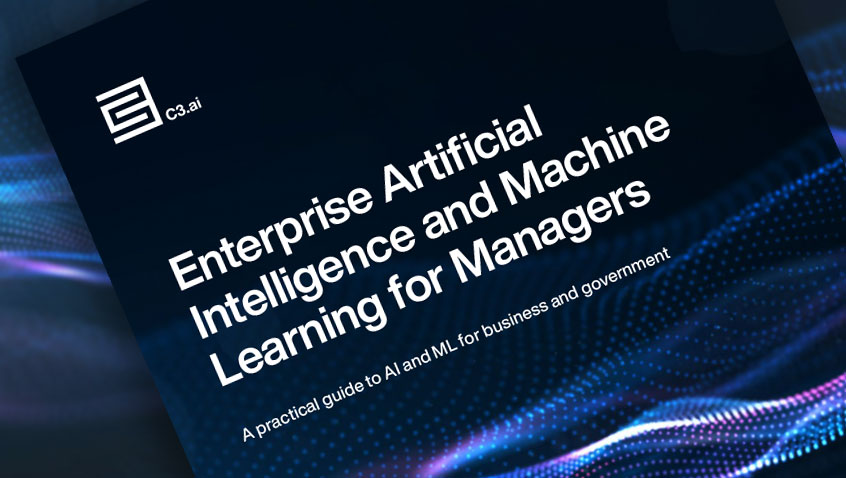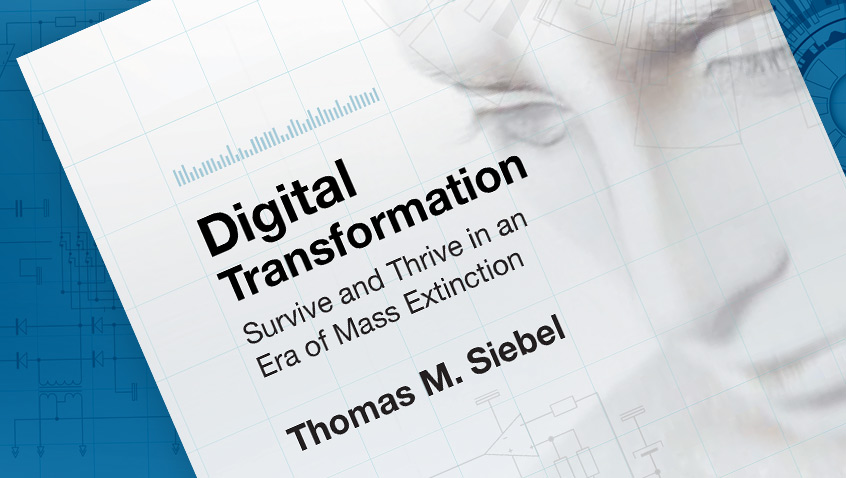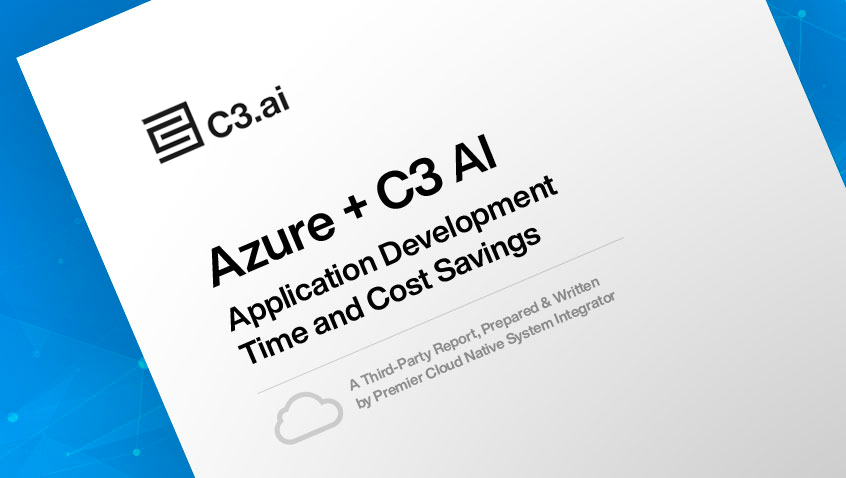- AI Software
- C3 AI Applications
- C3 AI Applications Overview
- C3 AI Anti-Money Laundering
- C3 AI Cash Management
- C3 AI Contested Logistics
- C3 AI CRM
- C3 AI Decision Advantage
- C3 AI Demand Forecasting
- C3 AI Energy Management
- C3 AI ESG
- C3 AI Health
- C3 AI Intelligence Analysis
- C3 AI Inventory Optimization
- C3 AI Process Optimization
- C3 AI Production Schedule Optimization
- C3 AI Property Appraisal
- C3 AI Readiness
- C3 AI Reliability
- C3 AI Smart Lending
- C3 AI Supply Network Risk – bak
- C3 AI Turnaround Optimization
- C3 Generative AI Constituent Services
- C3 Law Enforcement
- C3 Agentic AI Platform
- C3 Generative AI
- Get Started with a C3 AI Pilot
- Industries
- Customers
- Events
- Resources
- Generative AI for Business
- Generative AI for Business
- C3 Generative AI: How Is It Unique?
- Reimagining the Enterprise with AI
- What To Consider When Using Generative AI
- Why Generative AI Is ‘Like the Internet Circa 1996’
- Can the Generative AI Hallucination Problem be Overcome?
- Transforming Healthcare Operations with Generative AI
- Data Avalanche to Strategic Advantage: Generative AI in Supply Chains
- Supply Chains for a Dangerous World: ‘Flexible, Resilient, Powered by AI’
- LLMs Pose Major Security Risks, Serving As ‘Attack Vectors’
- What Is Enterprise AI?
- Machine Learning
- Introduction
- What is Machine Learning?
- Tuning a Machine Learning Model
- Evaluating Model Performance
- Runtimes and Compute Requirements
- Selecting the Right AI/ML Problems
- Best Practices in Prototyping
- Best Practices in Ongoing Operations
- Building a Strong Team
- About the Author
- References
- Download eBook
- All Resources
- Publications
- Customer Viewpoints
- Blog
- Glossary
- Developer Portal
- Generative AI for Business
- News
- Company
- Contact Us
Glossary
- Artificial Intelligence
- AI Agents
- AI in Finance
- AI in Manufacturing
- Anomaly Detection
- Anti-Money Laundering
- Asset Performance Management
- Asset Reliability
- Demand Forecasting
- Digital Disruption
- Digital Transformation
- Digital Twin
- Elastic Cloud Computing
- Energy Management
- Enterprise AI
- Enterprise AI Platform
- Ethical AI
- Inventory Planning
- IoT Platform
- Know Your Customer (KYC)
- Machine Vision (Computer Vision)
- Model-Driven Architecture
- Multi-Cloud
- No Code
- Predictive Analytics
- Predictive Maintenance
- Process Optimization
- Production Scheduling
- Stochastic Optimization
- Supply Chain Management
- Type System
- Data Unification & Management
- Machine Learning (A to L)
- Artificial General Intelligence
- Bias
- Canonical Schema
- Canonical Transform
- Classification
- Classifier
- Classifier Performance
- Clustering
- Coefficient of Discrimination, R-Squared (R2)
- Convolutional Neural Network (CNN)
- Correlation
- Data Cleansing
- Data Labels
- Data Lineage
- Deep Learning
- Dimensionality Reduction
- Explainable AI
- F1 Score
- False Positive Rate
- Feature Engineering
- Feedback Loop
- Field Validation
- Gaussian Mixture Model (GMM)
- Generalized Linear Models
- Gradient-Boosted Decision Trees (GBDT)
- Features
- Ground Truth
- Holdout Data
- Hyperparameters
- Information Leakage
- LIME: Local Interpretable Model-Agnostic Explanations
- Linear Regression
- Loss Function
- Low-Dimensional Representation
- Machine Learning (M to Z)
- Mean Absolute Error
- Mean Absolute Percent Error
- Machine Learning Pipeline
- Model Drift
- Model Prototyping
- Model Training
- Model Validation
- Normalization
- Overfitting
- Precision
- Problem Tractability
- Random Forest
- Recall
- Receiver Operating Characteristic (ROC) Curve
- Regression Performance
- Regularization
- Reinforcement Learning
- Reporting Bias
- Ridge Regression
- Root Mean Square Error (RMSE)
- Selection Bias
- Shapley Values
- Supervised Machine Learning
- Tree-Based Models
- Underfitting
- Unsupervised Machine Learning
- XGBoost
AI Agents
What is an AI agent?
An AI agent is an autonomous software entity that perceives its environment, processes information, and acts to achieve specific goals. Modern agentic AI systems coordinate specialized agents through memory and feedback loops, enabling them to reason through complex problems and adapt their responses. These systems excel at enterprise workflows by leveraging machine learning (ML), natural language processing (NLP), and large language models (LLMs) to transform raw data into valuable business insights.
How do AI agents work?
AI agents operate by perceiving their environment, reasoning about their goals, and executing actions to achieve those goals. They combine large foundation models with specialized capabilities such as memory, which allows them to retain and reuse contextual information, and reflection, which lets them assess and adjust their actions based on feedback. Using these capabilities, agents can dynamically plan, execute, and re-plan as conditions change—rather than following rigid, rule-based sequences. In enterprise environments, agents often collaborate within multi-agent systems, where a dynamic planning agent coordinates specialized agents and tools to complete complex workflows. This architecture enables agents to act autonomously, accurately, and adaptively across real-world business processes.
What are the benefits of using AI agents?
AI agents address reasoning and decision-making challenges that would be difficult to handle with conventional software. Their significance comes from several technical capabilities:
- Advanced reasoning for decision support. AI agents can analyze complex scenarios, generate multi-step plans, and make context-aware decisions that support a wide range of business and operational use cases. Unlike traditional rule-based systems, they reason dynamically, evaluating alternatives, prioritizing actions, and synthesizing data to recommend or execute optimal outcomes.
- High accuracy through memory and learning. By retaining short- and long-term memory, AI agents can recall relevant information, past actions, and successful outcomes to improve future performance. This contextual grounding enhances precision, consistency, and auditability in environments where accuracy is critical, such as forecasting, diagnostics, and compliance.
- Dynamic adaptability and orchestration. AI agents can continuously adjust their plans and actions as new data or conditions emerge. In enterprise settings, this adaptability allows them to coordinate multiple agents and tools, manage dependencies across systems, and maintain reliable performance even as processes scale or evolve.
Together, these capabilities enable AI agents to deliver trustworthy, high-value outcomes in data-intensive, fast-changing environments — transforming how organizations plan, decide, and operate.
What are examples of AI agents?
AI agents are used across a wide range of enterprise functions, where they automate reasoning, decision-making, and coordination tasks traditionally performed by humans.
Sales, marketing, and customer service
In customer-facing roles, AI agents can analyze behavioral data to recommend products, personalize marketing outreach, and respond to service inquiries with contextual accuracy. They can route cases, summarize interactions, and provide next-step recommendations to improve customer engagement and retention. Enterprises see accelerated case resolution times, and more time freed for employees to focus on higher-value, strategic activities.
Back office operations
In functions such as finance, HR, legal, and procurement, AI agents automate repetitive and data-intensive workflows.
They can reconcile transactions, process invoices, review contracts, generate reports, and assist in talent management — improving efficiency while maintaining compliance and auditability. This reduces administrative burden, allowing teams to allocate more attention to decision-making and strategic business initiatives.
Operations and supply chain management
AI agents in operations and manufacturing environments monitor production systems, forecast demand, and optimize logistics. They can identify equipment anomalies, recommend schedule adjustments, and coordinate across suppliers to minimize delays and maintain business continuity. These capabilities enhance resilience and efficiency, empowering organizations to respond proactively to changing market or production conditions.
Research and development
In engineering and scientific domains, AI agents accelerate innovation by processing large datasets, running simulations, and assisting with design exploration or experimental analysis. They can suggest hypotheses, automate testing cycles, and surface insights that guide discovery and development. This helps enterprises bring new products and technologies to market faster while enabling researchers to focus on creativity and problem-solving.
Across these domains, AI agents enable organizations to augment decision-making, streamline complex workflows, and achieve higher levels of accuracy and adaptability in daily operations.
How does C3 AI use AI agents?
The C3 Agentic AI Platform incorporates AI agents through a patented multi-hop orchestration framework that coordinates specialized agents to perform complex, multi-step enterprise workflows. This framework underpins C3 AI Agentic Process Automation (APA) — a core capability of the platform that enables organizations to automate dynamic business processes using reasoning, planning, and adaptive decision-making. With APA, enterprises can declaratively model end-to-end workflows that integrate human-style reasoning with enterprise-grade governance, security, and traceability.
Our model-driven architecture allows these agents to seamlessly connect with existing enterprise data and systems through a unified semantic data model. This eliminates the need for custom integrations while ensuring consistent visibility, auditability, and control across all agentic operations.
C3 AI delivers a comprehensive portfolio of prebuilt applications powered by these agents, including C3 AI Reliability, C3 AI Inventory Optimization, and C3 AI Agentic Process Automation. For example, agents within our supply chain applications autonomously perform data retrieval, optimization modeling, and visualization tasks to help organizations continuously adapt to changing market conditions.
Major enterprises across manufacturing, energy, and financial services use C3 AI’s agentic solutions to automate complex workflows, enhance decision quality, and accelerate operational performance across the business.



